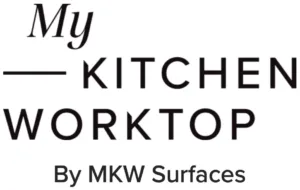As standard industry guidelines, Dekton worktops are available in different thicknesses – from slimmer to thicker slabs. Their thickness varies for different reasons, such as for serving as backsplashes, wall installations, flooring solutions or kitchen worktops.
The Thickness of Dekton Worktops
Dekton worktops are available in 4 mm, 8 mm, 12 mm, 20 mm and 30 mm thicknesses. However, each thickness level contributes to higher countertop value and better wear in highly functional areas.
According to industry experts, 30 mm thick Dekton slabs are fairly expensive but provide long-term value compared to thinner slabs, both in terms of installation and durability. Dekton 30mm surfaces are ideal for large pieces that will be unsupported on the underside, such as kitchen islands and breakfast bars since these can potentially extend to over 500mm with no additional support.
In like manner, 20 mm Dekton worktops are obviously thinner than 30 mm slabs. Not only that these slabs are more affordable than the 30mm Dekton slabs, as less material is required for manufacturing 20 mm worktop slab but in design terms a 20mm is the most versatile thickness. This is due to the fact that with a single sheet, one can install both worktops and splashbacks in the same thickness, bringing real value to any project.
On the other hand, 12 mm, 8 mm and 4 mm worktops are thinner respectively compared to 20 mm and 30 mm Dekton slabs. While the thinner slabs are equally appealing and give similar aesthetic appeal as the thicker slabs, the thinner versions are more vulnerable to cracks, chipping or scratches. For this reason, Dekton in 8mm and 4mm, also known as ‘ Dekton Slim’, are recommended for wall and furniture cladding. The reason for this, is that thin Dekton may crack when creating large cutouts such as bath tops, sinks and hobs, whereas walls do not require such cutouts.

Edge Profile
Dekton worktops are available in many different edge profiles. Please see below the three most popular Dekton edge profiles:
- Pencil Edge Profile
A pencil edge profile has a tiny curved design on the higher edge, just like the tip of a pencil, which inspired its name. It appears to have a single but unbroken curve. This edge profile is suitable for any Dekton surface, regardless of thickness. It also helps the Dekton worktops to have more fluid, contemporary impression; as well as being the least prone to chipping when accidental impacts occur.
- Square Edge Profile
The Square profile looks great in both traditional and modern kitchens. It gives solid appeal and appearance to the worktops with simple and clean lines. When making a square edge profile, the designers still give it a slightly curvy touch at the top edges so that it doesn’t become too sharp, whilst avoiding the risk of injury. This edge profile looks brilliant on 12 mm or thicker worktops.
- Single Bevel Edge Profile
The single bevel edge profile looks great on 20 mm and 30 mm Dekton worktops, giving a geometric layout to your countertops without messing with the clean lines. It has two sweeping archers on the top and bottom, creating the timeless impression that’s likely to become the focal point of your worktop.
Application
The thinner slabs ( 4 mm, 8 mm and 12 mm) are perfect to offer a sleek look to your kitchen splashbacks and may support various other types of applications. Some contractors prefer thinner Dekton slabs for backsplashes, fireplace surrounds bath/shower, flooring or wall coverings. Thin 4mm Dekton surfaces are also ideal to use in high places or hidden areas, since they only weigh 10 KG per square metre, compared to 40 kg in marble or 50 kg in granite for the same.
On the other hand, designers and homeowners also choose 20 mm and 30 mm worktops for their kitchen worktops, as well as other functions such as upstands, splashbacks and window sills. Installing these thicker Dekton worktops ensures that you don’t have to buy additional material for vertical panelling or fabrication of these thicker slabs.
Price
The 4 mm, 8 mm and 12 mm worktops are cheaper than 20 mm and 30 mm Dekton worktops due to ease of installation and use of less material. Therefore, many homeowners and interior designers prefer them for different uses in their house. Dekton starts at £47.78 + vat per m2 in 4mm although it is recommended to ask your supplier to provide prices for the complete project since there is an element of labour which varies according to the type and specifications of each project.
Although 20 mm Dekton worktops are more economical than 30 mm worktops; however, both are very similar in terms of functionality and resistance against chipping, cracking or any other type of damage. If 30 mm Dekton worktop is out of your budget, you can opt for 20 mm Dekton slab, as no one will be able to notice the difference between the two.
How is Dekton Made?
Dekton is made by mixing raw materials such as porcelain, glass, quartz and granite worktops. In addition, Cosentino includes an exclusive formula to ensure the surfaces are totally non-porous and that these can be used indoors and outdoors. If you are interested in knowing how is Dekton made, you can watch the below video from the manufacturer.
Which thickness level is suitable for which area of your house?
Not sure which thickness level of a slab is suitable for different areas of your kitchen? You must discuss your budget and options with an experienced professional fabricator to get a personal and up-close look at the thickness of your selected Dekton countertops. However, there are some fabricators who only work with a certain thickness of a worktop based on their machinery or experience. They may find a certain thickness level better than the other. Therefore, you must keep in mind the thickness parameter and speciality of the experts when selecting an installation professional.
Published by Jesus Alberto Mouzo on July 15, 2019







